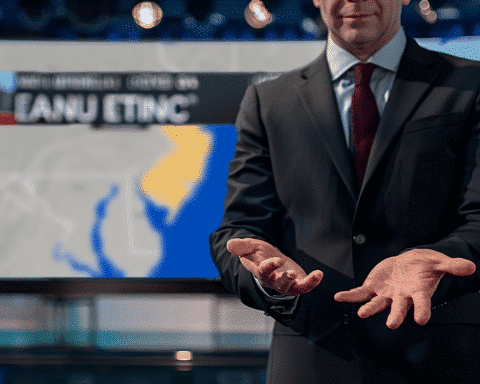A personal injury lawyer named Tia Garcia was recently denied entry to a hockey game at Madison Square Garden in New York City. The security guard told her to wait for management to speak to her, and the reason for her denial was that her law firm is involved in litigation against the arena’s parent company, and she is on a ban list.
The security used facial recognition technology to identify her, which recognized her despite her efforts to disguise her face during a previous visit to the arena.
Local Lawmakers Hold Hearing to Discuss Use of Facial Recognition Technology
The incident with Tia Garcia has raised questions about the use of facial recognition technology in local businesses and venues. Local lawmakers, including the City Council, held a hearing to discuss the use of facial recognition technology and the concerns surrounding it.
Questions were raised about who is using the technology, who they are trying to keep out, and what happens when the technology makes a mistake. Madison Square Garden did not send a representative to the hearing, and it is unclear which other businesses are using facial recognition technology.
Many Businesses in New York City May Be Unaware of the Biometrics Law
Businesses using facial recognition technology are typically looking for faces on a watch list, such as previous shoplifters. Madison Square Garden created its lawyer watch list by collecting faces from the barred firms’ websites.
A sign was found at Fairway Market that disclosed the use of FaceFirst’s technology to “stop grocery store violence and theft.” It is important to mention that many businesses may still be unaware of the NYC biometrics law that requires such signs to be posted. The penalty for failure to post a sign is $500, and the law prohibits businesses from selling or sharing biometric information, with damages of up to $5,000 per violation.
Retailers Combatting Retail Theft with Facial Recognition Technology
Retail theft has been on the rise since the pandemic, and some retailers have implemented facial recognition systems to combat it. Fairway Market, a gourmet grocer, has a facial recognition system in place since a year ago to combat retail theft. Macy’s on 34th Street also collects “biometric identifier information” for asset protection purposes, but it is unclear whether they use facial recognition technology. Macy’s spokesperson previously said that they use facial recognition in a small subset of stores with high incidences of organized retail theft and repeat offenders.
The use of facial recognition technology in New York City and across the country is a complex issue with various implications for privacy, civil liberties, and security. The case of Tia Garcia being denied entry to Madison Square Garden highlights the potential dangers of such technology when used without proper oversight and regulation. The fact that many businesses in New York City are not complying with the biometrics disclosure law raises concerns about the lack of transparency and accountability in the use of this technology.
With the constant evolution of technology, it becomes crucial for lawmakers, businesses, and individuals to comprehend the advantages and disadvantages of facial recognition technology and implement measures to guarantee its ethical and responsible usage.




